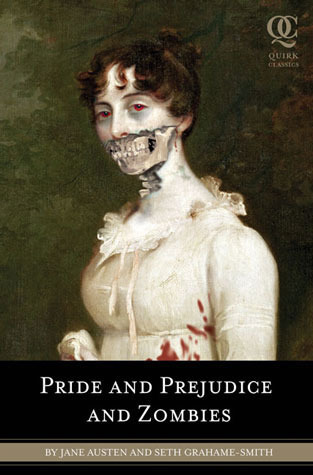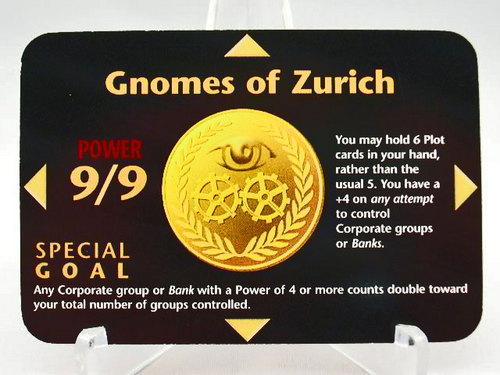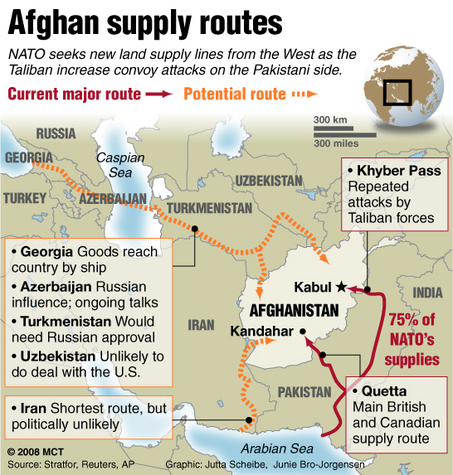J.D. Rhoades's Blog, page 39
November 2, 2011
DEAD OF WINTER: Homicide For The Holidays

My own contribution, "I'll Be Home For Christmas," features Gibson County Chief Deputy Tim Buckthorn, who was one of my favorite characters in my critically acclaimed novel BREAKING COVER. My friend David Terrenoire observed once that the book was as much Buckthorn's story as it was Tony Wolf's, and he was right. I've been wanting to use Tim in a story for a while, and this was my chance.
The book's tentatively set for release on November 15th...I'll keep you posted.
October 30, 2011
The Zombie Renaissance
Tomorrow is Halloween, the time when we think about ghosties, ghoulies, and various things that go bump in the night. So it seems an appropriate time to discuss the Zombie Renaissance.Seems like there's never been a better time to be a creator of zombie-related art and entertainment. The website 24/7 Wall Street estimates that "today's zombie-genre economy," as they put it, is worth up to $5 billion.First and foremost, of course, there are the movies. Starting with the shambling, rotting grandaddy of them all, "Night of the Living Dead," all the way though films like "28 Days Later," its sequel "28 Weeks Later," the seemingly unkillable "Resident Evil" franchise, the Will Smith vehicle "I Am Legend" (which substituted fast-moving, rage-filled zombies for the vampires in the original novel), the hilarious spoofs "Shaun of the Dead" and "Zombieland," and the upcoming "World War Z," starring Brad Pitt, it seems that the undead make for great box office.Then there are things like video games (the recent smash hit shoot-em up "Call of Duty: Black Ops" comes with a mode where the player battles Nazi zombies); TV shows (AMC's "The Walking Dead" has just been picked up for a third season); comic books; and even novels such as "Pride and Prejudice and Zombies," which takes Jane Austen's classic novel and updates it with a few ghouls (as an Austen-loving friend of mine puts it, that's just so wrong).

Some people jump on the zombie bandwagon through so-called "zombie walks," in which crowds of people make themselves up as zombies and lurch, moan and chomp their way through cities and towns, all in good fun and sometimes for charity.The first recorded walk occurred in 2001 in Sacramento to promote a horror film festival, but the idea quickly spread like — well, like a zombie plague. Now cities compete for the record of biggest walk, with the current crown held by Asbury Park, N.J., which recorded an invasion of 5,000 rotters and secured a place for itself in "The Guinness Book of World Records."Dublin, Ireland, claimed a turnout of 8,000 for the one they held July 23 of this year, but Guinness has not yet confirmed the number, possibly because of the difficulty of sorting out whether a pale person staggering through the streets of Dublin and muttering incoherently is a wannabe zombie or just a drunk on his way home from the pub.Which raises the question: Why are the walking dead such a hot item these days? I mean, I love a good zombie story as much as the next guy, but even I have trouble explaining why zombies seem to be replacing vampires as everyone's favorite undead.I can almost see the appeal of the vampire thing. There's a certain sexiness about vampires, or so the fans tell me. They're beautiful, their hunger equates with great passion, they bite your neck — hey, it's not my kink, but whatever floats your boat. But it's hard to envision a best-selling book and movie series about a forbidden romance between a beautiful but awkward teenage girl and a mindless, flesh-eating ghoul.Maybe it's because zombies embody something we all recognize deep down, something that's definitely on the rise these days. As my friend Stephen Blackmoore, author of the upcoming zombie novel "City of the Lost," once put it: "Zombies aren't terror, they're dread. They're the physical embodiment of anxiety." Which may be why they've gotten so much more popular in these anxious times.On the flipside, though, zombies are kind of goofy, with their blank expressions, their clumsy shuffle, the bits falling off. They're funny in a sick kind of way. They take that anxiety and make it into something you can laugh at. If you can laugh at it, it's not so scary.And that's what Halloween is all about, Charlie Brown. [image error] (click the pic for hints on surviving a zombie plague. Because you just never know.)
October 28, 2011
Graveyard Tales

New for Kindle and Nook: "The Caretaker." Two short stories from the graveyard, just in time for Hallowe'en!
In "The Caretaker," William Cain doesn't know why only he can see the new arrivals in his cemetery, or why they tell him their stories--but he knows how to take care of their unfinished business. "Spadework" is a previously published tale of a father's revenge.
Cover by David Terrenoire.
Kindle: http://www.amazon.com/dp/B005ZT6PPU
Nook: http://search.barnesandnoble.com/books/e/2940013246478
October 23, 2011
We'd Get Jail Time If We Tried This
OK, listen up and I'll tell you what happened.Citibank is the giant consumer-banking arm of an amazingly, colossally gargantuan financial company called Citigroup. [image error]
And they don't just make their money by charging you confusing and ridiculous fees for using your own money and by issuing credit cards with interest rates that would shame a Mafia loan shark; they also offer "investment services." Among the investments they peddle are what are called CDOs, which is short for "Collateralized Debt Obligations." Sounds impressive, doesn't it?Simply put, a CDO is a big ol' bundle of debts. If you buy a CDO, you get paid when the debts do. If a whole bunch of the debts go into default and never get paid, neither do you.So what Citibank did is offer a whole bunch of these CDOs to investors, telling those investors that the packages had been put together by an impressive-sounding outfit called "Credit Suisse Alternative Capital."How could this possibly go wrong? The people picking the investments in the bundle certainly sounded impressive; they had "Swiss" right in the name, and we all know how good the Swiss are with money, right?

Well, no. The CDOs, as it turns out, were backed by those infamous "subprime" mortgages. They were, in fact, crap. When mortgages started defaulting all over, the CDOs they were backing collapsed. Investors lost millions. Citibank, along with several other financial institutions, had to be bailed out by the U.S. government.They did eventually pay their government loans back in full. So all's well that ends well, right? Too bad about the people who bought all those bad CDOs, but who could have known they'd be duds?Well, as it turns out, Citibank knew.According to documents filed by the Securities and Exchange Commission, it wasn't Credit Suisse that had had the major hand in picking the lousy investments that backed the CDOs; it was Citibank itself. And they knew the investments they were peddling weren't as solid as they made them out to be.In fact, they were so dubious about the products they were selling that they took what are called "short positions" on them in other financial markets. In essence, they bet on their own investments to fail. And when they did, Citibank got paid anyway. In the immortal words of Jerry Reed, Citibank got the gold mine while its customers got the shaft.Now, imagine if you will that I'd sold you some impressive-looking papers that I swore were bonds that were going to make you wealthy. I even brought out a bearded guy with a tweed coat and a pipe who told you he was a famous economist and that he'd pronounced the investments sound.But the so-called "bonds" were actually just something I'd printed up on my computer, backed up by a lot of junk from my storage shed. The "economist" was some old dude I'd paid to say any nonsense I told him to.

Meanwhile, I'd gone and placed a bet that I could bankrupt you.For you and me, that sort of con game would be a felony. No one from Citibank, however, is going to jail. The company, without admitting any wrongdoing whatsoever, agreed to pay a fine of $285 million. This seems like a lot of money, until you consider that Citibank reported, according to its own website, net income of $3.8 billion [with a "b"] in the third quarter of 2011 alone.And that, my friends, is one very big reason why people are in the streets, not only on Wall Street and in Times Square, but across the world. They're sick of the fact that no one, whoever's in power, seems to be willing to hold these mega-banks to the same standards as you or me when they rip people off.And yes, I include the Obama administration in that. While they've made some attempts at financial reform, they haven't been nearly as vigorous about it as I'd like. Of course, "as vigorous as I'd like" would include public floggings and the placing of bank executives into the stocks to be pelted with offal, so I don't think I'll ever be completely happy with anyone. [image error]
But the point is this: If reading about Citibank's shenanigans and the resultant slap on the wrist ticks you off, then you may have more in common with the "Occupy Wall Street" movement than you think.
October 22, 2011
Review: SHOTGUN GRAVY, Chuck Wendig
 Shotgun Gravy by Chuck Wendig
Shotgun Gravy by Chuck WendigMy rating: 4 of 5 stars
Atlanta Burns is an angry young woman who has, in her own words, "been through some bad shit." The exact nature of that particular metaphorical excrement isn't immediately spelled out, but the aftermath has left her an outcast, feared and shunned even by her former friends. When she takes on a particularly psychotic set of school bullies, she stumbles into some local secrets that foretell more bad times ahead in future installments of this series.
The violence and language would probably scare off the average YA publisher. That's why I'm so glad that the e-book revolution allows stuff like this to find a readership, because this is a really good book. It's very realistic in its portrayal of the relentless tension and dread that's familiar to anyone who's ever been bullied, that sense that you can't get away, no one will help, and there's no way out, save suicide or violence. I doubt school authorities would condone the way Atlanta takes matters (and her trusty .410 scatter-gun) into her own hands, but it makes for a compelling revenge fantasy.
View all my reviews
October 18, 2011
The Myth of the Liberal Media
Rick Perry received the most favorable coverage of any candidate for president during the first five months of the race, but now Herman Cain is enjoying that distinction, according to a new survey which combines traditional research methods and computer algorithmic technology to code the level and tone of news coverage.Perry lost the mantle of the candidate enjoying the most favorable treatment to Herman Cain two weeks ago, after the Florida straw poll in which Cain scored a surprise victory. Meanwhile, though he has often led in the polls, former Massachusetts governor Mitt Romney has received less coverage and less positive coverage than the shifting casts of frontrunners -- and that remains true even now. He ranks second in the amount of attention received, and the tone of that narrative has been unwaveringly mixed.One man running for president has suffered the most unrelentingly negative treatment of all: Barack Obama. Though covered largely as president rather than a candidate, negative assessments of Obama have outweighed positive by a ratio of almost 4-to-1. The assessments of the president in the media were substantially more negative than positive in every one of the 23 weeks studied. In no week during these five months was more than 10% of the coverage about the President positive in tone.
Liberal Media My Ass.
October 16, 2011
Herman Cain and the Forrest Gump Republicans
I want to make one thing clear from the very beginning: I do not think that Herman Cain, the former CEO of Godfather's Pizza and the current darling of the right, is an ignoramus.He's got a B.A. in mathematics and a master's in computer science. He worked as a ballistics analyst for the U.S. Navy before his highly successful business career. So no, I do not think Mr. Cain is an ignorant man.I think that he just pretends to be.First there was his famous pronouncement to a conservative organization in Iowa that he wouldn't sign any legislation longer than three pages.As reporter Marie Diamond pointed out at the time, this would have stopped him from signing such landmark legislation as the Civil Rights Act, the PATRIOT Act, and the Bush tax cuts.I'm sure Mr. Cain has, as a matter of course, read and signed off on hundreds if not thousands of business memos and contracts far longer than three pages. So when he acts as if he has the attention span of a third-grader, he's got to be pretending.Most recently, Mr. Cain not only pronounced his ignorance of world affairs, he did so defiantly. He was asked by an interviewer on the Christian Broadcast Network if he was ready for the "gotcha" questions that bad old liberal media were sure to throw at him. Questions like, "Who's the president of Uzbekistan?"Cain responded, "When they ask me who is the president of Ubeki-beki-beki-beki-stan-stan, I'm going to say, 'You know, I don't know. Do you know?' And then I'm going to say how's that going to create one job?" He went on to say that it wasn't critical to know "the head of some of these small insignificant states around the world."For the record, the current president of Uzbekistan is a guy named Islam Karimov, and knowing who he is is really kind of important, since this "small insignificant state" borders Afghanistan, where I assume Mr. Cain knows we have troops on the ground. We had an air base there until 2005, and the country lies across a potentially significant supply route for our troops if things continue to get uglier with Pakistan.

So why would someone who wants to be the president of the United States pretend not only to be ignorant of a potential player in a regional hotspot, but also to be proud of that ignorance?
The answer is simple: because of the audience he's playing to. There is a distressingly large group of voters who act as if knowledge and expertise are suspect and simple-mindedness is something to be proud of.It's a longstanding tradition in this country. From Jimmy Stewart's "Mr. Smith Goes to Washington" to "The Beverly Hillbillies" to Tom Hanks' "Forrest Gump," our national mythology is filled with the unschooled, the naive or the mentally challenged, who -prevail over the wicked and crafty "smart" people through their sheer goodness and -decency, without ever, it seems, getting any smarter or well informed.Well, Mr. Smith, Jed Clampett and Forrest Gump are great characters, but they're just that. Characters. They're fiction, written to fulfill our yearning for simple answers in a complicated world.But in the real world, the elevation of ignorance leads to bizarre aberrations like an unlicensed and uneducated plumber from Ohio being held up by the right as some kind of oracle, even as he says one silly thing after another. The elevation of ignorance leads to smart people playing dumb, like an otherwise bright girl pretending to be an airhead because she thinks boys won't like her if she's too brainy. Or like Herman Cain.Cain's bumper-sticker homilies like "I'm not going to sign a bill longer than three pages," his alleged contempt for knowledge of foreign affairs, and his tax plan that every economist agrees won't raise enough money to run the country (but it sure is simple!) are pandering, pure and simple. They're attempts to play to the constituency I've begin calling the Forrest Gump Republicans.But Forrest Gump isn't going to lead us out of the mess we're in. And neither is playing at being an ignoramus to get that rube vote. That's not leadership. You lead by encouraging people to act a little smarter, not by trying to pander and fool them that you're as dumb as they are.
October 10, 2011
How Steve Jobs Changed My Life
Steve Jobs, one of the founders of Apple Inc., died Wednesday of pancreatic cancer. He was only 56 years old.
It's not overstating the case to say that Jobs was one of a handful of people who created the world we know today. Certainly, his Apple computers changed my life, even though I've spent years as a PC guy.
In 1984, I was in my last year as an undergraduate. I was living in a rowdy apartment with three roommates, each of them wonderfully mad in his own way. One of them was a double major, if I recall correctly, in anthropology and computer science.
He had one of the first personal computers I'd ever seen, an Apple II. I'd mucked about a bit on it, mostly playing games. Sometime in the spring semester, though, he brought home a strange-looking box with a built-in screen and an odd little device attached to it by a wire.
"What's that thing?" I asked.
"It's a mouse," he said. "And this is a Macintosh."
"Huh," I said. He turned it on, and a little graphic that looked like the computer itself smiled at me.
"Whoa," I said.
Now, understand, I'd never used one of these before, and the so-called GUI (graphical user interface) was completely new to me. But within minutes, it was as if I'd been using the thing all my life. Put hand on mouse. Use mouse to move a little arrow on the screen to an icon that shows what you want to do. Click the button. Presto!
Oh, there wasn't a hard drive, so it was a pain to keep swapping those little 3.5 inch floppies out of the two disc drives to get a lot of things done, but it was the easiest, most intuitive computer I'd ever used.
I know, you young readers are rolling your eyes and going, "Right, Grandpa, that's how computers are supposed to work."
But the fact that you can be so blasé about it just goes to show how much those simple concepts — the mouse and the graphical interface — changed the face of computing, and eventually, the way work got done. In my case, it was the way things got written.
See, I've always been a terrible typist. Typing school assignments was always a particular kind of hell for me; I always ended up using so much Wite-Out on my frequent typos that the pages would actually be stiff and crackly, and people learned to cover their ears near my room if I was working on a term paper, because I'd be turning the air blue swearing over those same typos.
But with the computer, erasing a typo was as easy as hitting Backspace, and moving entire paragraphs around was a breeze. When I went to law school, it was the bank of Mac II's in the school's computer lab that made brief writing and other assignments far easier than they might have been otherwise.
Bill Gates and Microsoft quickly followed the Mac with their own graphic interface, Windows, which started off much clunkier and less elegant than the Macintosh system, but which, thanks to some brilliant (some say shady, and some others say illegal) marketing practices, took a much larger share of the market than Apple.
And so the Platform Wars broke out on a newfangled communications system called the Internet. Mac and PC users sneered, "Get a real computer" at each other in the way that only people who know they're not going to get punched in the nose can do.
Since most of the places I've ever worked used Windows-based systems, that's what I eventually ended up using. But it was the Mac, developed by Steve Jobs and his partner, Steve Wozniak, that revolutionized the idea of computing for me. I don't think I'd even be a writer at all if it weren't for the personal computer, and the Mac was the first one I ever wrote on.
The Mac wasn't the only world-changing innovation Jobs and Apple gave us. Pixar Studios, which Jobs formed after buying Lucasfilms' computer animation division, revolutionized the animated film with movies like "Toy Story" and "Monsters, Inc." The iPod and iTunes changed the way we listen to and buy music. The iPhone expanded our ideas of what we could expect a cell phone to do. And now we have the iPad, which is changing our relationship with computing yet again.
RIP, Steve Jobs. I would have loved to see what you came up with next.
October 2, 2011
Chris Christie: The Second Coming?
A busted clock is right twice a day. Even a blind pig finds an acorn now and then. And it appears that William Kristol has actually been right about something. These are, as Paul Simon sings, days of miracle and wonder.
I know I've been awfully hard on Smilin' Bill, the amiable boob who's the editor of the conservative magazine The Weekly Standard and who's been popping up for years on the Sunday panel shows, grinning like a possum eating persimmons and spouting utter nonsense like "The Iraq War will cost at most $200 billion," "Sarah Palin's resignation won't hurt her chance at the Republican nomination and anyone who says different is afraid of her," and other lack-witted pronouncements.
Kristol is the guy who's often caused me to offer my services to the networks, because I can be just as wrong for half the price.
However, after the last Republican debate, Kristol wrote a "special editorial" on the Weekly Standard's website and summed up the Republican field in one word: "Yikes!" He went on to say that "none of the candidates really seemed up to the moment, either politically or substantively. In the midst of a crisis, we're getting politics as usual - and a somewhat subpar version of politics as usual at that."
He quoted a "bright young conservative" who'd emailed him in dismay: "WE SOUND LIKE CRAZY PEOPLE!!!!" He also rather glumly quoted my favorite poem, Yeats' "The Second Coming," to describe the choices before Republicans: "The best lack all conviction, while the worst are full of passionate intensity."
So far, so good. And so right. Kristol, however, can't stay correct for long, and his solution was typically dimwitted: Call in Chris Christie, the corpulent New Jersey governor, whom Kristol calls "a big man for a big job."
Problem is, Christie's said over and over that he's not running. His poll numbers in his own state are awful. He also appointed a judge who's a Muslim to the bench and called people who protested "crazy" and their concerns about the imaginary threat of Sharia law "crap."
He's dead right, but it immediately disqualifies him in the eyes of the crazies who believe in crap.
Oh, and I don't want to be Pedantic Literary Guy here, but Kristol also completely misunderstands the poem he's quoting when he says that the last line ("what rough beast, its hour come round at last, slouches towards Bethlehem to be born?") "sounds like Chris Christie."
I wonder how Gov. Christie would feel about the comparison, because the "rough beast" Yeats speaks of in his vision is kind of scary. He's a "shape with lion body and the head of a man, gaze blank and pitiless as the sun." Not the kind of candidate you'd want to have a beer with, for sure.
Nevertheless, it seems that Christie is the latest in a series of desperate attempts by the wingnuts and teahadists to find someone who'll save the party from nominating Mitt Romney, a heretic who's actually worked with Democrats and gotten some good things done for his state, like a reasonable health care plan.
But the far right doesn't want compromises with Democrats. They don't want a health care plan for anyone who's not them. They're willing to burn the country down in the name of "taking it back." So they fall for grifters like Palin (perpetually fundraising, perpetually coy about whether she's running) or nutters like Donald Trump and Michele Bachmann.
But then the flavor of the month says something so mind-bogglingly stupid ("The HPV vaccine caused a woman's child to become mentally retarded!") that even the mainstream media can't ignore it, and down they go. So Rick Perry becomes the new ABM (Anyone But Mitt), until he falls apart in the debate, then shows that he's actually got some positions that make sense, such as not punishing children who grew up in America because they were brought here by illegal immigrant parents.
But sanity enrages the goon squads, that noisy cohort the party refuses to acknowledge, yet somehow manages to get invited to every GOP debate. You know, the ones that cheer for executions, shout "yeah!" when someone asks if you should just let an uninsured man die, and boo soldiers in Iraq because they're gay. For those people, Rick Perry's greatest sin is that he's not crazy enough. So the perpetually angry and disgruntled right moves on. Now they turn their eyes to Christie, who's not even running.
Yeah, good luck with that.
September 25, 2011
If This Be Class Warfare, Let Us Make the Most of It.
One of the most widely used and abused right wing buzzwords of this wild and wacky century is "class warfare." Sometimes it seems as if it's the knee-jerk wingnut answer to everything. Point out the growing inequality of income in America, in which the rich are getting richer, the poor are getting poorer and more numerous, and the middle class is getting smaller and being squeezed harder? They won't bother denying it, they'll just complain that mentioning it is "class warfare." Propose a tax hike on the wealthiest Americans to pay for upgrades to American infrastructure (and in doing so, create more jobs for the companies who do the upgrading)? "Class warfare!" the Teahadists sputter.
Well, after hearing the whining of Louisiana representative John Fleming, I'm saying "so what if it is?" Fleming, who owns a chain of Subway restaurants and UPS stores back home, recently appeared on MSNBC and complained that by the time he paid taxes, paid all his bills, and "fed his family" he had "maybe, $400,000 left over to invest in new locations, upgrade my locations, buy more equipment." When host Chris Jansing pointed out that he probably wasn't going to get a lot of sympathy pointing out that he "only" had 400K left over after expenses, the poor little rich boy went immediately to the standard fall-back, saying "class warfare never created jobs."
I've got to tell you, Congressman Fleming, when you consider that your buddies in Congress oppose President Obama's plan to cut payroll taxes, which affect primarily middle and working class people, yet continue to insist on tax breaks for the wealthiest Americans, that sounds an awful lot like class warfare to me. When you consider that that 400K you regard as so paltry is the equivalent of eight median household incomes ($50,000 was the average in 2010, down 2.3 percent from the year before)....well, it makes me want to reach for a torch and a pitchfork, build a guillotine in the front yard, and say, to paraphrase Patrick Henry, "if this be class warfare, let us make the most of it."
As for the tired old protest that higher taxes on wealthy people are "punishing success," I refer you to Massachusetts Senatorial Candidate Elizabeth Warren. You may remember Warren as the woman who helped oversee the creation of the Consumer Financial Protection Bureau that the Republicans in Congress are now striving mightily to strangle in its crib. She was recently at a campaign event in Andover and delivered an epic smackdown to the myth of the "self-made American millionaire," saying: "There is nobody in this country who got rich on his own. Nobody. You built a factory out there? Good for you. But I want to be clear. You moved your goods to market on the roads the rest of us paid for. You hired workers the rest of us paid to educate. You were safe in your factory because of police forces and fire forces that the rest of us paid for. You didn't have to worry that marauding bands would come and seize everything at your factory, and hire someone to protect against this, because of the work the rest of us did. Now look, you built a factory and it turned into something terrific, or a great idea. God bless. Keep a big hunk of it. But part of the underlying social contract is, you take a hunk of that and pay forward for the next kid who comes along."
Doggone right. Here's the thing. If there's one unshakable rule of economics, it's that stuff costs money. Roads, highways and bridges cost money. Schools cost money. A powerful military costs money, especially when it's in two wars. Police cost money, as the NC Highway Patrol showed us when they had to suspend their training academy indefinitely, because of budget cuts--cuts necessitated by the Republican-controlled legislature's refusal to consider tax increases.
Let's face it: civilization is expensive. Right wingers like to rail against "freeloaders," but it's the people who become successful because society provides the infrastructure and the freedom to use it, and who then refuse to help pay for it, that are freeloading.
If you're a member of the middle class, keep one thing in mind: When multimillionaire politicians or pundits or talk show hosts start hollering about "class warfare," while opposing tax breaks for the middle class and defending them for the wealthy, they want you to pay for the civilization that made their success possible. They've already declared war. On you.



